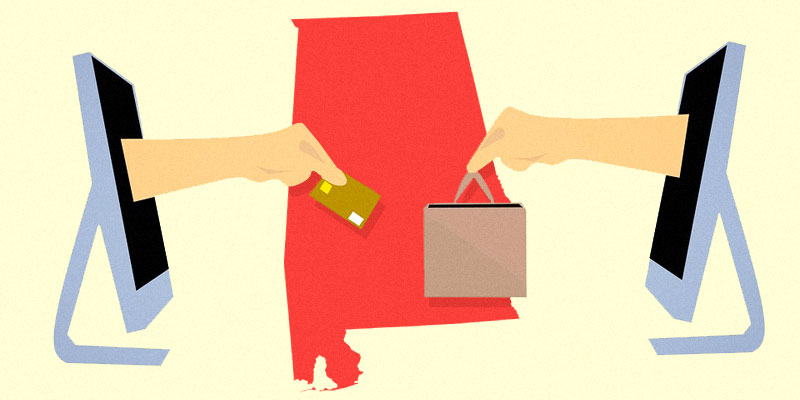Alabamians will start paying more for many online purchases beginning in October, as the state seeks to translate a recent Supreme Court ruling on internet transactions into revenue.
Last month, the high court reversed a 26-year-old precedent and ruled that states could require online retailers to collect the sales tax even if the company has no physical presence in the state. As a result of the decision in the dispute between South Dakota and the retailer Wayfair, the Alabama Department of Revenue announced Tuesday that it would implement a rule adopted in 2016 to most transactions beginning Oct. 1.
Some online retailers voluntarily had been collecting the Alabama sales tax. Now, all companies will be required to do so except small businesses with less than $250,000 in annual sales in the state.
The state Legislature several years ago created the Simplified Sellers Use Tax Program to encourage voluntary compliance with the sales tax. For online retailers, it replaces the confusing maze of state, county and municipal sales taxes — in which rates vary across the state — with a uniform 8 percent levy.
That helped induce many large retailers to participate. After the Wayfair decision, nearly all of them will be required to do so.
Officials from the Department of Revenue have no estimate of how much additional revenue the state might collect.
“There are no numbers yet,” said Frank Miles, a spokesman for the agency. “Those don’t even exist yet.”
But state Sen. Trip Pittman (R-Montrose), who crafted legislation creating the Simplified Sellers Use Tax Program, said it likely will be fairly significant.
“I think it would be 10, 20 million more for the state with the ruling,” he said.
Pittman suggested that he is somewhat conflicted about the issue as a small-government conservative. Despite a dislike for taxes, he said, making online retailers collect the tax levels the playing field with in-state brick-and-mortar stores that do have to do so.
Under the law, taxpayers are supposed to send sales tax to Montgomery on purchases from out of state if the business does not collect the levy. But it is a rule that almost universally is ignored.
“Avoiding taxes is probably one of the biggest pastimes Americans have — probably even more than sports,” Pittman said.
He added: “The only way to limit government is to limit the money it has. But being budget chair, people ought to pay for the government they get.”
Typically, sales tax collected by the state goes to the education budget. But the system set up for online retailers directs a large chunk to the chronically ailing general fund, which pays for everything from Medicaid to prisons to mental health services.
When online retailers pay the 8 percent tax, half goes to the state and half goes to local governments. Cities get 60 percent of the local portion, and counties get 40 percent.
Of the state portion, 75 percent supports the general fund, while 25 percent goes to the Education Trust Fund.
The formula sparked some opposition from bigger cities with higher sales tax rates. But Pittman said making the sales tax revenue uniform brought in money that, otherwise, would not have existed.
“Some of something is better than none of nothing,” he said.
The Department of Revenue Tuesday put out guidelines to online retailers. Remote sellers with Alabama sales less than $250,000 a year can register for an exemption here.
Officials said the department is studying changes to the tax system and plans to produce additional guidance.
@BrendanKKirby is a senior political reporter at LifeZette and author of “Wicked Mobile.”
Don’t miss out! Subscribe today to have Alabama’s leading headlines delivered to your inbox.
